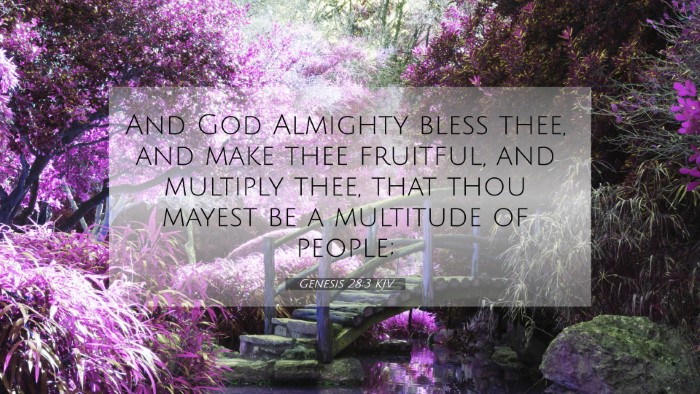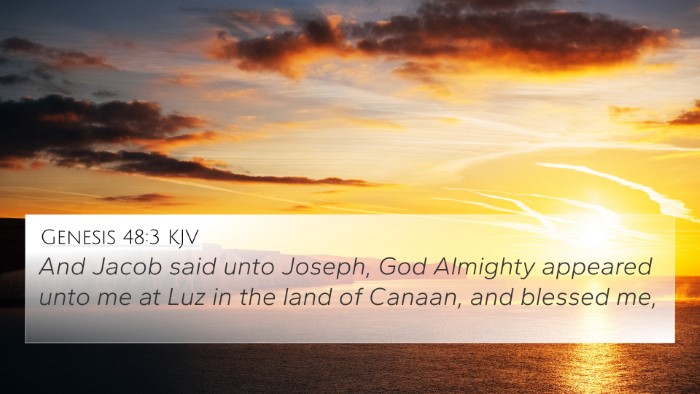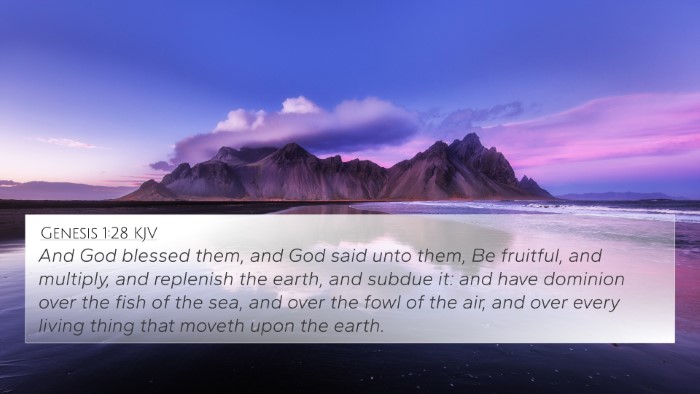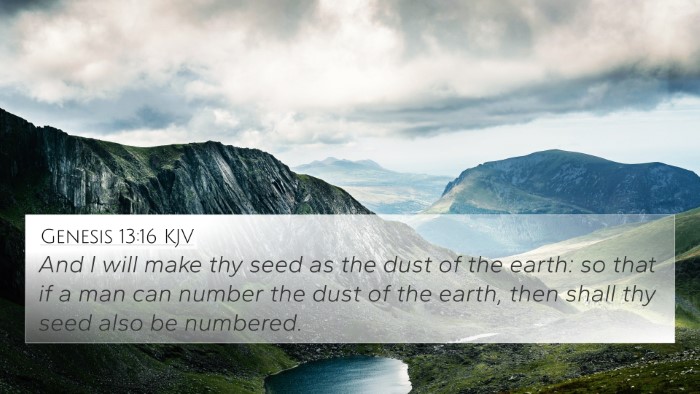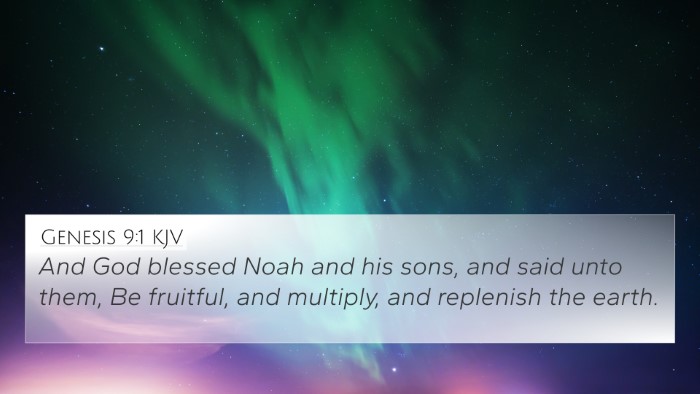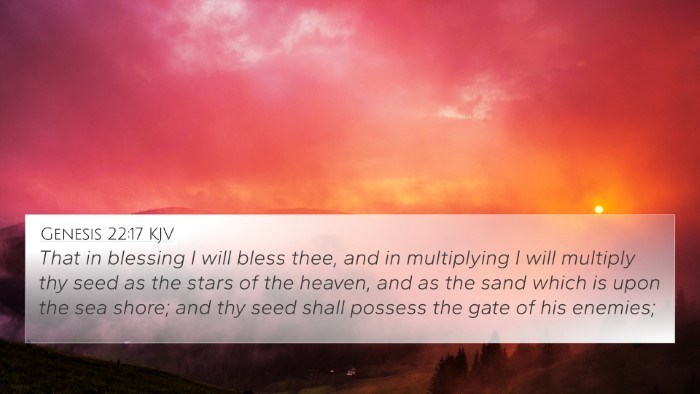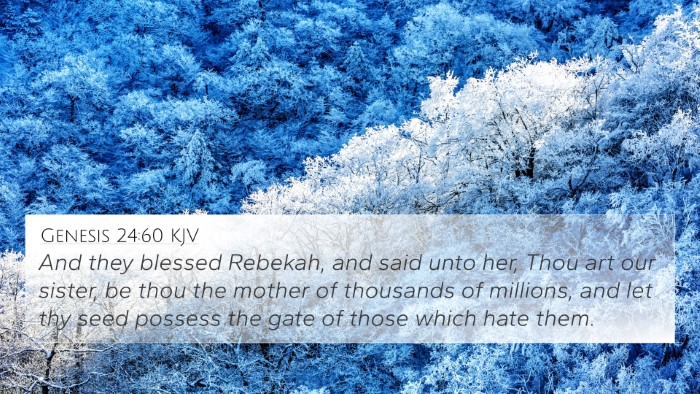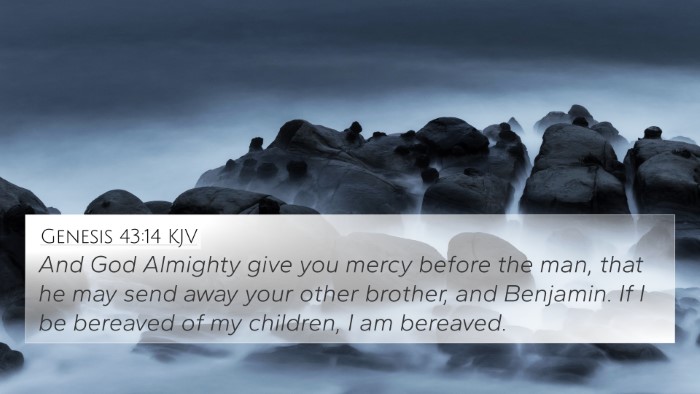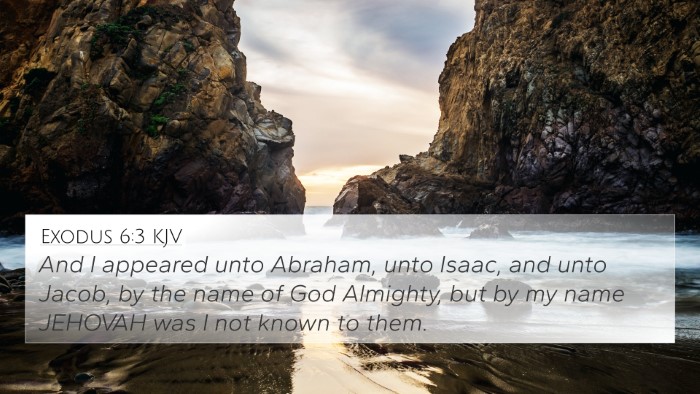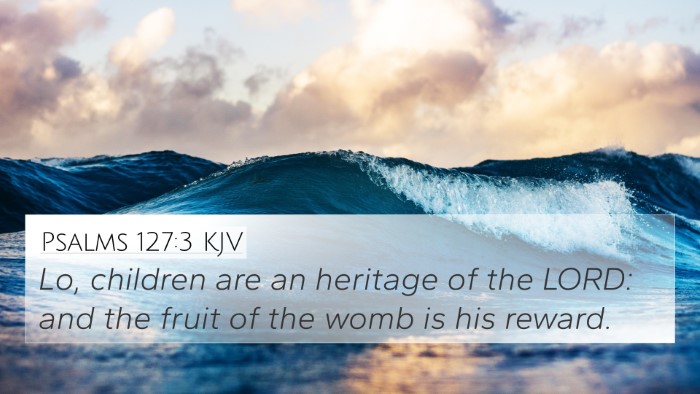Understanding Genesis 28:3
Genesis 28:3 states: "And God Almighty bless thee, and make thee fruitful, and multiply thee, that thou mayest be a multitude of people." This verse is significant as it reflects God's covenantal promise to Jacob, showing God's intent to bless and multiply his descendants.
Meaning and Interpretation
The verse occurs when Isaac, Jacob's father, blesses him before he departs to find a wife among his mother's relatives. This blessing contains key elements that underscore its theological importance:
- Divine Blessing: The term "God Almighty" (El Shaddai) emphasizes God's omnipotence and ability to fulfill His promises. This title assures Jacob that God is capable of carrying out His covenant.
- Fruitfulness and Multiplication: The phrases "be fruitful" and "multiply" echo God's creation mandate from Genesis 1:28, implying that Jacob will not only be successful personally but will also have a significant impact on future generations.
- Multitude of People: This aspect connects to the promise made to Abraham, indicating that the covenant lineage will continue through Jacob, leading to the formation of a great nation, Israel.
Cross-References
Genesis 28:3 is intertwined with several other biblical passages, illuminating the multifaceted connections throughout Scripture:
- Genesis 1:28: "And God blessed them, and God said unto them, Be fruitful, and multiply, and replenish the earth, and subdue it." - This passage establishes the theme of blessing through multiplication.
- Genesis 12:2: "And I will make of thee a great nation, and I will bless thee, and make thy name great; and thou shalt be a blessing." - foreshadowing the promise of national identity.
- Genesis 17:4-5: "As for me, behold, my covenant is with thee, and thou shalt be a father of many nations." - reiteration of the covenant promise to Abraham and his descendants.
- Genesis 46:3: "And he said, I am God, the God of thy father: fear not to go down into Egypt; for I will there make of thee a great nation." - God's assurance to Jacob of fruitful multiplication.
- Exodus 1:7: "And the children of Israel were fruitful, and increased abundantly, and multiplied, and waxed exceeding mighty; and the land was filled with them." - fulfillment of the blessing promised to Jacob.
- Deuteronomy 7:13: "And he will love thee, and bless thee, and multiply thee: he will also bless the fruit of thy womb..." - echoes the themes of blessing and multiplication connected to obedience.
- Romans 9:7-8: "Neither, because they are the seed of Abraham, are they all children: but, In Isaac shall thy seed be called." - highlights the spiritual lineage stemming from God's promises to Isaac and Jacob.
Thematic Connections
This verse encapsulates several key biblical themes:
- Covenant: God’s promise reflects the enduring covenant that began with Abraham and extends through to Jacob and beyond.
- Faith and Obedience: Jacob’s journey emphasizes the necessity of faith in God’s promises and the obedience required to receive blessings.
- Divine Providence: The assurance of God's blessing illustrates His continuous guidance and provision in the lives of His chosen people.
- Community and Identity: The multiplication of Jacob’s lineage signifies the formation of a unique identity and community, crucial for the history of Israel.
Conclusion
Genesis 28:3 serves as a vital scriptural passage that encapsulates God's intention to bless and multiplies His people through spiritual and physical descendants. By examining this verse and its connections to other scriptures, we can appreciate the profound themes of covenant, divine blessing, and the ongoing relationship between God and His people through generations. Utilizing tools for Bible cross-referencing can enhance understanding of these links and deepen our scriptural comprehension.
Further Study
For those interested in exploring further, consider using a bible concordance or a bible cross-reference guide to discover how Genesis 28:3 connects with other passages throughout the Bible. Understanding these connections can greatly enhance one's study of scripture, providing profound insights and greater thematic coherence.
Related Studies
- How to find cross-references in the Bible: This can be done through the use of a concordance or through various online tools dedicated to verse analysis.
- Identifying connections between Old and New Testament: Examining how themes evolve through both testaments can provide a fuller understanding of God’s promises.
- Comparative study of Pauline epistles: Exploring parallels between Old Testament promises and New Testament fulfillments in Apostle Paul’s writing.
- Cross-referencing Psalms with New Testament teachings: Investigating how Psalms reflect the underlying themes of God's promises as seen through New Testament lenses.
- Bible verses that support Genesis 28:3: Utilizing verse analysis to identify supportive scriptures for deeper insights into God's covenantal blessings.


